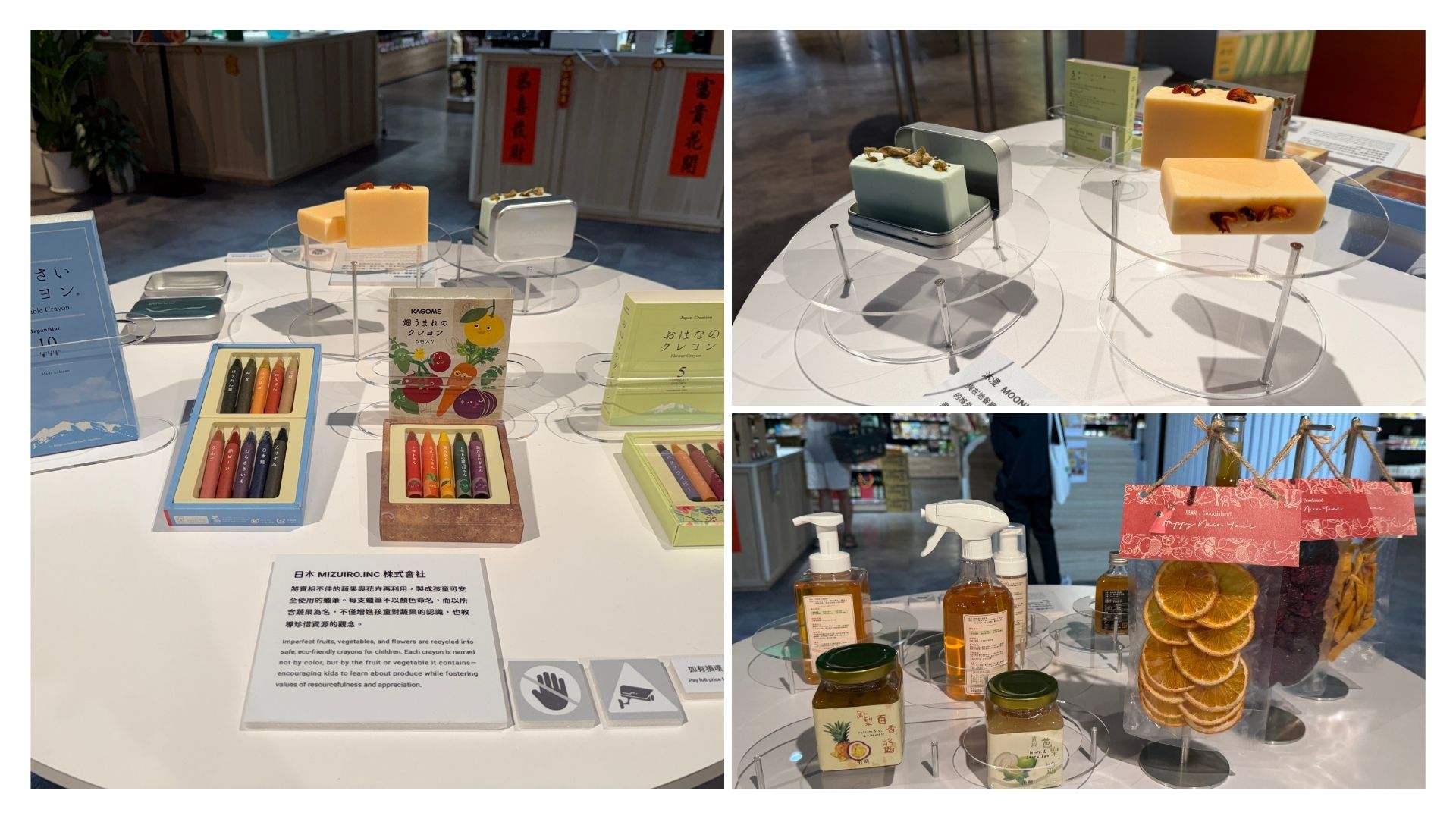1. What Are “Ugly Fruits”?
Have you ever seen fruits at the market that look a bit crooked, have small spots on the skin, or vary in size?
They’re not rotten, nor are they lacking in nutrition—they’re simply “not pretty enough.” These “imperfect” or “extra-grade” fruits, if properly utilized, can reduce waste and honor the hard work of farmers.
According to the Food and Agriculture Organization (FAO), the world wastes about 1.3 billion tons of food each year,
equivalent to one-third of global food production.
That means for every three meals produced, one never gets eaten.
If all that wasted food were piled up, it could fill over 40,000 Taipei 101 towers.
And if shared equally, everyone on Earth could have one extra full meal every day.
Behind every wasted apple or tomato lies the labor of farmers, the sun’s warmth, and the soil’s nutrients—resources lost when food is discarded. Along with the food, we also lose land, water, and energy.
In Taiwan, this story happens daily. The Environmental Protection Administration reports that around 25,000 tons of fruits and vegetables are discarded each year, many of which are “imperfect produce.”
They still taste delicious—but never make it to store shelves.
If we can give them a second life, we not only cut waste but also protect farmers from needless loss.
2. What Ugly Produce Reveals About Food Waste
The story of ugly produce mirrors our obsession with “perfection.”
We pick the roundest apples, the straightest bananas, the shiniest tomatoes.
Anything slightly off-shape is often dismissed.
But this pursuit of visual perfection has led to countless perfectly edible foods being thrown away.
In recent years, the Imperfect Produce Movement has gained traction worldwide.
More brands and consumers are rethinking a simple question:
Should the value of food be defined by appearance—
or by how we cherish what the earth provides?
3. “Edible Tales” Exhibition: Seeing the Beauty in Imperfection at Plantārium
The final stop of the “Edible Tales” exhibition—Ugly Produce Reuse Brand Zone—
celebrates creativity and sustainable living, showing that every fruit deserves a second life.
🌿 mooni 沐澧
Turns “extra fruits” into natural cleaning products.
Using fruit peels and plant oils, they create handmade soaps and eco-friendly cleansers,
transforming leftover fruits into fragrances that care for the planet.
🍋 Chuan-Yung Orchard 川湧果園
From trees back to the soil.
Overripe fruits are reborn as fruit vinegar and natural cleaners—
each bottle capturing the sustainable flavor of time and sunlight.
🍊 Fruit Island 果嶼
Handcrafted dried fruits preserve nature’s sweetness.
Made from imperfect produce, each bite tastes like sunshine captured in fruit form.
🖍️ MIZUIRO.INC (Japan)
Transforms “food colors” into creative expression—
using edible pigments from discarded vegetables to make safe, child-friendly crayons.
Art becomes a gentle act of sustainability.Together, these brands embody the spirit of Plantārium’s “Edible Tales”:
Understanding food begins with empathy—turning awareness into meaningful choices.

4. Redefining “Beauty in Food” at plantārium
In an age obsessed with appearance, perhaps we all need to relearn the beauty of imperfection.
Through the “Edible Tales” exhibition, Plantārium invites everyone to pause, reflect,
and rediscover the distance between “how food looks” and “what it truly means.”
From soil to table, from rejected to rediscovered—
every choice we make can give food another chance at life.
All it takes is a little kindness.
Visit plantārium and experience the story of “Edible Tales.”
You’ll find that the beauty of food isn’t in how it looks,
but in how we choose to appreciate it.
plantārium × Edible Tales|Ugly Produce Reuse Brand Zone
Let “imperfect fruits” return to the table—
and fill life with a little more warmth and the scent of sustainability.
#EdibleTales #plantārium #UglyProduce #ImperfectIsPerfect #SustainableLiving #FruitIsland #MoOni #ChuanYungOrchard #MIZUIRO #FoodWasteReduction #SustainabilityAesthetics #FoodEducation
